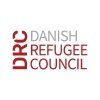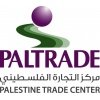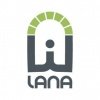Power Analysis of Agricultural Stakeholders
TOR (Terms of Reference) for Power Analysis of Agricultural Stakeholders in Tubas and Jenin
Background:
Agriculture plays a vital role in the Palestinian economy and food security, with vegetables serving as one of the most essential components of the Palestinian diet. According to a recent market systems study, vegetables are the third most consumed food items, accounting for 14.5% of total household expenditure. This statistic highlights the significance of vegetables in the daily lives and nutrition of Palestinian families.
The northern West Bank governorates of Tubas and Jenin are key agricultural regions in the northern West Bank, with vegetable farming playing a central role in local livelihoods and food systems. In Tubas, about 60% of land is classified as agricultural and around 30,000 dunums are cultivated annually with vegetables. In the Jenin, agriculture contributes significantly to local livelihoods, with over 15% of households depending on farming. In Jenin, there are approximately 40,000 – 50,000 dunums of cultivated land in the governorate.
Despite their agricultural significance, both governorates are shaped by embedded power dynamics that influence access to resources, services, and opportunities. Access to land, water, and agricultural inputs is often controlled by a small number of actors, leaving vulnerable groups, particularly smallholder farmers, women, and youth, marginalized. These dynamics are deeply rooted in traditional rural structures and social norms that dictate gender roles and limit equitable participation in agricultural production and decision-making.
Specifically, the power dynamics that are engrained in Palestinian rural society, determining the different roles men and women play and affecting their different contributions in the processes of agricultural production. These power dynamics impact their access to resources, services, markets, and decision-making structures.
Power relations at multiple levels, household, community, cooperative, market, and institutional, determine who benefits from agricultural investments and who is excluded. These internal dynamics are compounded by broader structural challenges, including Israeli occupation policies, land fragmentation, movement restrictions, and climate-related vulnerabilities, all of which deepen existing inequalities and limit agricultural development.
Considering this complex context, Oxfam seeks to hire a consultant to conduct a power analysis of agricultural stakeholders in Tubas and Jenin, with a particular focus on fresh vegetables. The analysis will examine how formal and informal power structures impact access to resources, services, markets, and decision-making. It will also assess how these dynamics affect marginalized groups and identify practical entry points for advocacy and inclusive interventions to promote more equitable and inclusive agricultural development.
Objectives:
The purpose of the consultancy is to analyze the power relations, structures, and actors that influence vegetable farming in Tubas and Jenin. Additionally, the consultant will identify contextualized, actionable, and replicable entry points for intervention, advocacy, and policy engagement.
The consultant will be responsible for:
● Mapping the key actors and power structures influencing smallholder vegetable farmers, women, and youth in Tubas and Jenin
● Analyzing power dynamics at different levels (household, community, market, governance) and how these dynamics impact access to land, water, finance, inputs, market opportunities, and decision-making.
● Identifying the specific difficulties and disadvantages faced by vulnerable groups because of existing power structures.
● Examining how power asymmetries affect the vegetable value chain, including control over pricing, inputs, marketing, risk-sharing, and infrastructure access.
● Recommending actionable and context-specific advocacy entry points to address these imbalances and support more inclusive and equitable agricultural systems.
● Providing recommendations for influencing local and national policy aimed at addressing the power imbalances that exist in the vegetable value chain.
● Developing a replicable framework for mapping power dynamics and identifying targeted intervention strategies, adaptable for use in other agricultural contexts in the West Bank.
Scope of Work:
The consultant’s scope of work will include, but not be limited to:
● Conduct a brief, targeted desk review of key documents relevant to vegetable farming and power dynamics in Tubas and Jenin.
● Map key stakeholders across the vegetable value chain, identifying formal and informal power holders and gatekeepers influencing access to resources, services, and decision-making.
● Hold focus groups with smallholder farmers (disaggregated by gender and age), cooperatives and farmer associations, local councils, Ministry of Agriculture and other relevant government bodies, etc.
● Analyze power dynamics by identifying:
○ Visible power (formal rules, policies, and institutions)
○ Hidden power (who sets agendas, gatekeeping, informal influence)
○ Invisible power (social norms, internalized barriers limiting participation)
● Examine the intersection of Israeli occupation-related constraints, such as land confiscation, settler violence, and mobility restrictions, with local power structures and their compounded effects on marginalized groups.
● Identify practical entry points for interventions and advocacy at the community, local, and national levels that could contribute to shifting power imbalances and improving accountability within the vegetable value chain.
● Recommend practical and scalable interventions to promote power sharing and inclusivity, and ensure equitable participation for smallholder farmers, women, youth, and landless laborers in the vegetable value chain, enabling fair access to resources, decision-making, and opportunities.
For the Full TOR Click Here.
Contact for submission/inquiries: [email protected]
Deadline for submission: July 5th, 2025, at 16:00 Jerusalem time





















